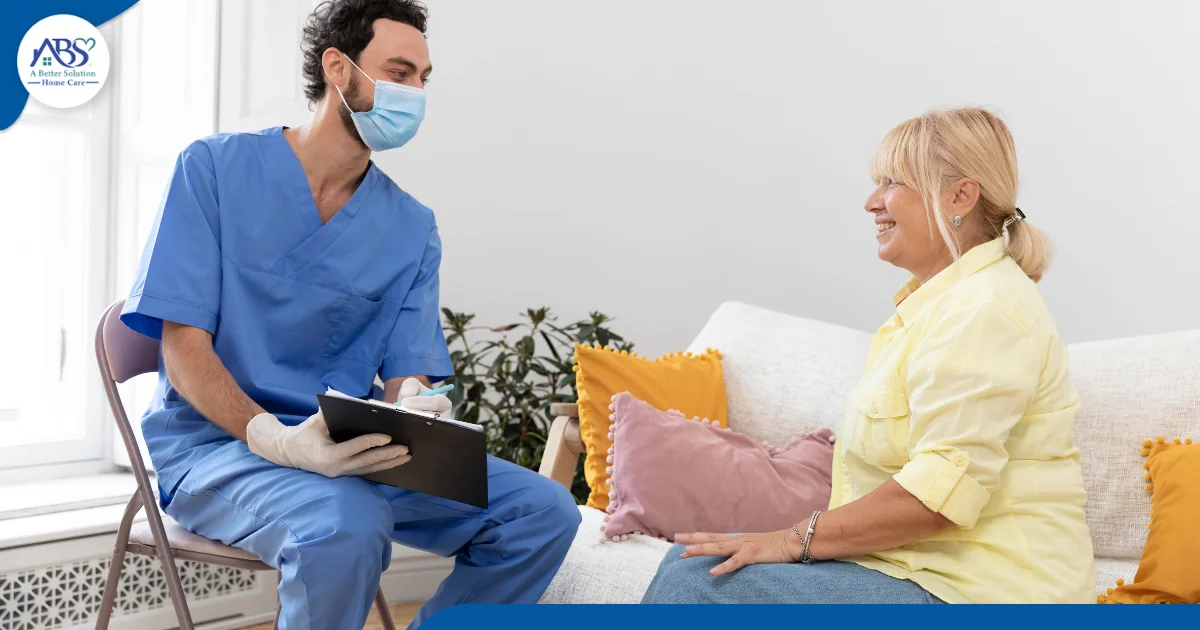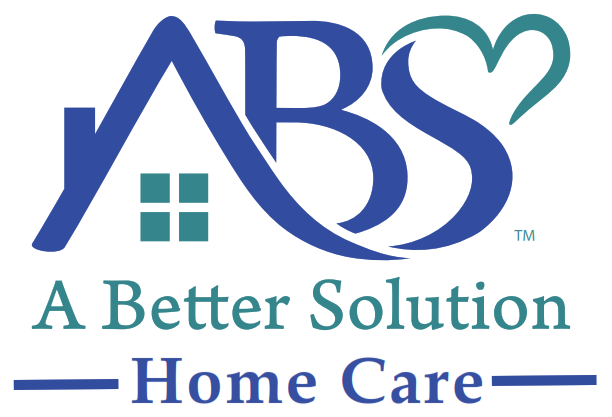
Post-Hospital Home Care Checklist | What to Ask Your Home Care Provider
10-17-2025
When a loved one comes home after a hospital stay, relief often mixes with anxiety. The first few days can feel overwhelming with new medications, mobility concerns, follow-up visits, and an unfamiliar routine. Without proper guidance, even minor gaps in care can lead to setbacks. That’s why having a post-hospital home care checklist is essential. It helps families organize questions, set expectations, and ensure their loved one’s recovery is as smooth and safe as possible.
A clear plan not only reduces stress but also prevents avoidable complications. With the right information and support, families can transition from hospital to home with confidence and peace of mind.
Why the Transition from Hospital to Home is Risky
The period immediately after discharge is one of the most vulnerable stages in recovery. Many patients experience hospital discharge risks such as medication mix-ups, infections, or falls. Studies show that nearly 20% of older adults face readmission to hospital after discharge, often because they didn’t receive the right level of care or missed critical follow-ups.
A post-hospital home care plan helps prevent these issues by ensuring every detail—medications, appointments, and daily support—is properly coordinated. Without adequate oversight, patients can face home safety after hospital challenges, from limited mobility to confusion about care instructions. That’s why creating a reliable system of home care after hospital discharge is crucial to safe recovery and long-term well-being.
Coordination with Medical Team & Transitional Planning
A successful post-hospital home care recovery depends on how smoothly care is handed over from hospital to home. Effective coordination between your home care provider and medical team ensures that no information is lost in transition. When families, physicians, and caregivers communicate clearly, patients are less likely to experience setbacks or medication confusion.
Before discharge, confirm that your home care agency participates in hospital to home care transition meetings and receives all relevant documentation such as discharge summaries, medication lists, and therapy plans. Ask who will serve as the liaison with doctors and how updates will be shared if your loved one’s condition changes. This bridge between clinical and home settings strengthens continuity, ensuring post-hospital home care recovery remains steady and safe. By prioritizing this coordination, families can better manage care complexity and reduce readmission after hospital stays, creating a more seamless path to independence.
What to Ask Your Home Care Provider: The Checklist
Choosing the right home care provider requires more than a quick search. It's about understanding how their approach aligns with your loved one’s needs. This detailed home care checklist outlines the essential questions every family should ask before beginning post hospital care at home.
1. Care Assessment & Planning
How will the provider assess your loved one’s medical and personal care requirements? Ask if they perform an in-home assessment and how often care plans are reviewed. A personalized post discharge care plan ensures no detail is overlooked, from nutrition to mobility support. You deserve transparency on how progress will be tracked and shared.
2. Medication Management
Medication confusion is one of the leading causes of setbacks during post-hospital home care and readmission after hospital discharge. Ask who handles medication reconciliation after discharge and how updates are managed when prescriptions change. Confirm if caregivers are trained to document doses and spot side effects. Knowing your loved one’s medications are monitored correctly ensures a safer, more stable recovery.
3. Safety & Home Environment
Safety at home is the foundation of successful post-hospital home care and overall healing. Ask your provider if they perform a home safety after hospital inspection to identify fall hazards or obstacles. Will they install grab bars, recommend mobility aids, or rearrange furniture for accessibility? These simple steps protect against injury and support safe home recovery.
4. Follow-Up & Communication
Consistent communication reassures families that care is being delivered effectively. Ask how often you’ll receive updates, whether via calls, reports, or digital logs. Confirm who to contact during emergencies and whether the provider coordinates with physicians for care changes. Ongoing dialogue ensures your family feels informed and involved throughout the post-hospital home care process.
5. Caregiver Qualifications & Availability
Trust begins with knowing your post-hospital home care caregiver’s background. Request details about their certifications, experience, and training in post-hospital recovery. If your loved one needs overnight caregiver or 24 hour home care support, ask about shift transitions and supervision. You deserve caregivers who are skilled, attentive, and compassionate, available whenever you need them.
6. Flexibility & Scalability
Health needs can shift quickly after discharge. Ask if your provider can adjust the post hospitalization care at home plan as your loved one recovers, adding hours for therapy or reducing visits as independence returns. A flexible agency will evolve care without disruption or confusion.
7. Costs, Billing, and Insurance
Financial clarity provides peace of mind. Discuss hourly rates, payment options, and any potential extra fees before care begins. A trustworthy provider explains insurance coverage for post hospital care at home and ensures you fully understand the billing structure, because transparency builds trust and confidence.
To make this process easier, we’ve created a printable home care provider questionnaire—your step-by-step guide to navigating post hospital care for elderly loved ones. Bring it to your first consultation or use it to compare agencies. It’s a practical tool to ensure your family makes informed, confident decisions.
[Download the checklist here.]
Nutrition, Hydration & Rehabilitation Support
Supporting Recovery Through Daily Care
Proper nutrition and physical activity are often overlooked but critical in post hospital care for elderly individuals. Ask your post-hospital home care provider how they assist with meal preparation, hydration reminders, and therapy exercises. Balanced nutrition and mobility activities promote faster healing, better energy, and emotional well-being.
Integrating Therapy and Healthy Routines
If your loved one has therapy orders, confirm how post-hospital caregivers will support them. This could include helping with prescribed exercises, encouraging movement, or ensuring consistency with rehabilitation routines. For those needing help with appetite or hydration, a trained caregiver can make mealtimes easier and more enjoyable, turning daily care into part of a healthy post hospital care at home plan. Nutrition and rehabilitation support not only strengthen the body but also build confidence, enabling individuals to regain independence with dignity and comfort.
How A Better Solution Home Care Handles These Needs
At A Better Solution Home Care, we understand how delicate the hospital to home care journey can be. Our approach ensures every client receives personalized, thorough, and compassionate attention from day one.
- Comprehensive Assessment: We design individualized plans for home care after hospital discharge after detailed evaluations, aligning every step with your loved one’s recovery goals.
- Medication Safety: Our caregivers follow strict protocols for medication reminders and coordination with healthcare professionals.
- Home Safety Checks: We identify potential hazards, ensuring home safety after hospital stays is never compromised.
- Family Communication: We maintain open, consistent communication through updates and check-ins, giving families reassurance and involvement.
- Flexible Scheduling: Whether you need short-term help, overnight home care, or overnight care for elderly loved ones, our adaptable plans evolve with changing needs.
- Transparent Pricing: Families appreciate our honesty—no hidden fees, just clear, reliable service.
Our commitment to quality in post-hospital home care helps families reduce readmission after hospital stays and ensures the best possible recovery experience.
Ensuring a Safe Recovery with the Right Home Care
Transitioning from hospital to home doesn’t have to feel uncertain or overwhelming. With the right post-hospital home care checklist, families can approach recovery with clarity and confidence, knowing they’ve asked every important question and chosen the right support system for their loved one. Taking the time to evaluate care providers, understand medication plans, and ensure safety measures can make all the difference in preventing setbacks or unnecessary readmission to hospital after discharge.
At A Better Solution Home Care, we understand that recovery is more than just physical healing. It’s about restoring comfort, independence, and peace of mind. Whether your family needs overnight care for elderly patients, short-term assistance, or ongoing post hospital care at home, we tailor every plan to meet your needs.
If you’re preparing for post hospital care or arranging home care after hospital discharge, let our team guide you through every step. Contact A Better Solution Home Care today for a free consultation and discover how our post-hospital home care services help make recovery safer, smoother, and worry-free!
